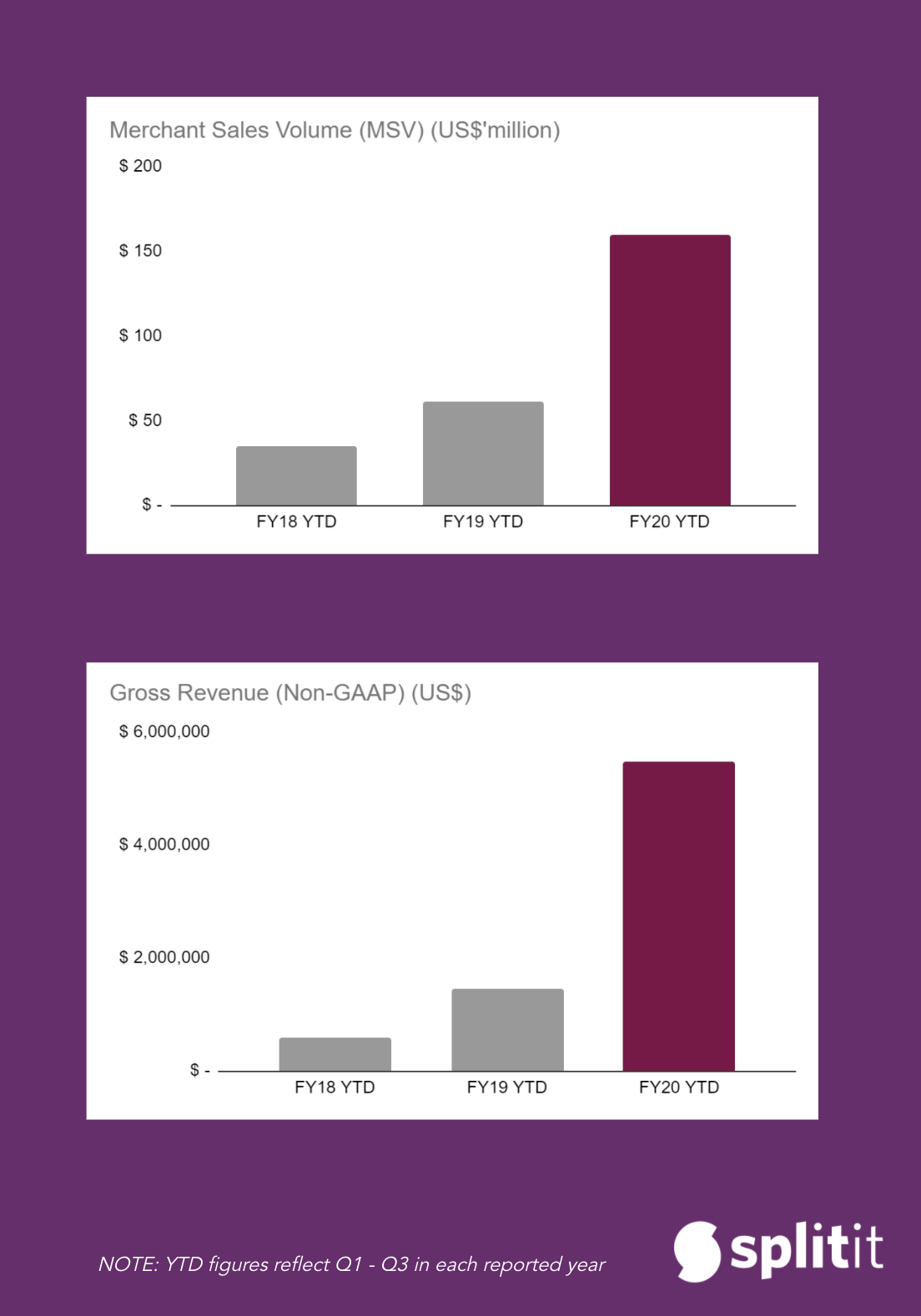Splitit & MongoDB Atlas: Racing to Capture a Global Opportunity
Splitit is a global payment solution that allows businesses to offer installment plans for their customers. Unlike with other buy now, pay later (BNPL) solutions, Splitit shoppers can split their online purchases into monthly installments by using their existing credit, without the need for registration, application, or approval.
“We have a very different proposition than others in this space,” says Splitit’s CTO, Ran Landau. “We’re not a financing company. We utilize the customer’s existing credit card arrangement, which allows us to accommodate smaller average deal values and a broader range of installment schedules.”
Splitit works with online retailers across all market sectors and diverse price points, and recently raised $71.5 million in investment to fund global expansion. Following its IPO in January 2019, the business had seen strong growth as more consumers moved from brick and mortar to ecommerce. Then COVID-19 hit, and online shopping boomed. Landau recognized that the company needed to quickly scale its infrastructure in order to capture this large opportunity.

The Need for Speed
Landau joined Splitit in May 2019 and worked to modernize the company’s infrastructure. At the time, the team was using a traditional relational database. “As tech leaders, we need to make the right decision,” he says. “When I came to Splitit, I knew I needed a powerful NoSQL server so that my developers could develop faster and so that we could scale – both things that our relational databases were failing to deliver.”
In the interest of getting up and running quickly, Ran’s team thought that they could move faster using a cloud-provider database that mimicked MongoDB functionality. He had used MongoDB before and saw that this solution offered the same drivers he was familiar with and claimed compatibility with MongoDB 3.6.
Initially, the new solution seemed fine. But as the team started to migrate more data into the database, however, Landau noticed a few missing features. Scripts for moving documents from one collection to another were failing, and overall performance was deteriorating. The application became slow and unresponsive even though the load on the database was normal.
“We were having issues with small things, like renaming collections. I couldn’t search or navigate through documents easily,” recalls Landau.
Offline Database: A Breaking Point
Then one day, the application was unable to communicate with the database for 20 minutes, and when the database finally came back online, something wasn’t right. Landau contacted support, but the experience was not very helpful. “We were not pleased with the response from the database vendor,” he explains. “They insisted that the issue was on our side. It wasn’t so collaborative.”
Fortunately, he had taken a snapshot of the data so Splitit was able to revert back to an earlier point in time. But the incident was troubling. Other teams also had been complaining about how difficult it was to debug problems and connect to the database successfully. Landau knew he needed to find a better solution as soon as possible.
-1273pjtye9.png)
MongoDB Atlas: A Reliable, Scalable Solution
Landau believed that MongoDB was still the right choice for Splitit, and investigated whether the company offered a cloud solution. He discovered MongoDB Atlas and decided to give it a try.
“The migration to MongoDB Atlas was so simple. I exported whatever data I had, then imported it into the new cluster. I changed the connection strings and set up VPC peering in all of my environments,” says Landau. “It was incredibly easy.”
Not only was MongoDB Atlas built on actual MongoDB database software, but it was also secure, easy to use, and offered valuable features such as Performance Advisor. “It can tell you which indexes need to be built to increase speed. It’s such a powerful tool — you don’t need to think; it analyzes everything for you,” explains Landau.
Another great feature was auto-scaling. “My biggest concern as I scale is that things keep working. I don’t have to stop, evaluate, and maintain the components in my system,” says Landau. “If we go back to doing database operations, we can’t build new features to grow the business.”
Auto-archival Made Easy with Online Archive
As a business in the financial services industry, Splitit needs to comply with various regulations, including PCI DSS. A key requirement is logging every transaction and storing it for auditing purposes. For Splitit, that adds up to millions of logs per day. Landau knew that storing this data in the operational database was not a cost-effective, long-term solution, so he initially used an AWS Lambda function to move batches of logs older than 30 days from one collection to another periodically.
A few months ago, he discovered Online Archive, a new feature released at MongoDB.live in June 2020. With it, Landau was able to define a simple rule for archiving data from a cluster into a more cost-effective storage layer and let Atlas automatically handle the data movement.
“The gem of our transition to Atlas was finding Online Archive,” says Landau. “There’s no scripting involved and I don’t have to worry about my aging data. I can store years of logs and know that it’s always available if I need it.”
-1yxgs28cb2.png)
Online Archive gives me the flexibility to store all of my data without incurring high costs, and feel safe that I won't lose it. It's the perfect solution.
Ran Landau, CTO, Splitit
With federated queries, the team can also easily analyze the data stored in both the cluster and the Online Archive for a variety of use cases.

Ready for Hypergrowth and Beyond
Looking back, Landau admits that he learned his lesson. In trying to move quickly, he selected a solution that appeared to work like MongoDB, but ultimately paid the price in reliability, features, and scalability.
-1yxgs28cb2.png)
You wouldn't buy a fake shirt. You wouldn't buy fake shoes. Why buy a fake database? MongoDB Atlas is the real thing.
Ran Landau, CTO, Splitit
Landau is confident that his investment in MongoDB puts in place a core building block for the business’ continued success. With a fully managed solution, his team can focus on building features that differentiate Splitit from competitors to capture more of the market.
“We saw our growth triple in March due to COVID-19, but the sector as a whole is expanding,” he says. “Our technology is patent protected. Everything we build moving forward will be on MongoDB. As a company that’s scaling rapidly, the most important thing is not having to worry about my scaling. MongoDB Atlas takes care of everything.”
Try MongoDB in the Cloud
Create a free account and launch a cluster in minutes!